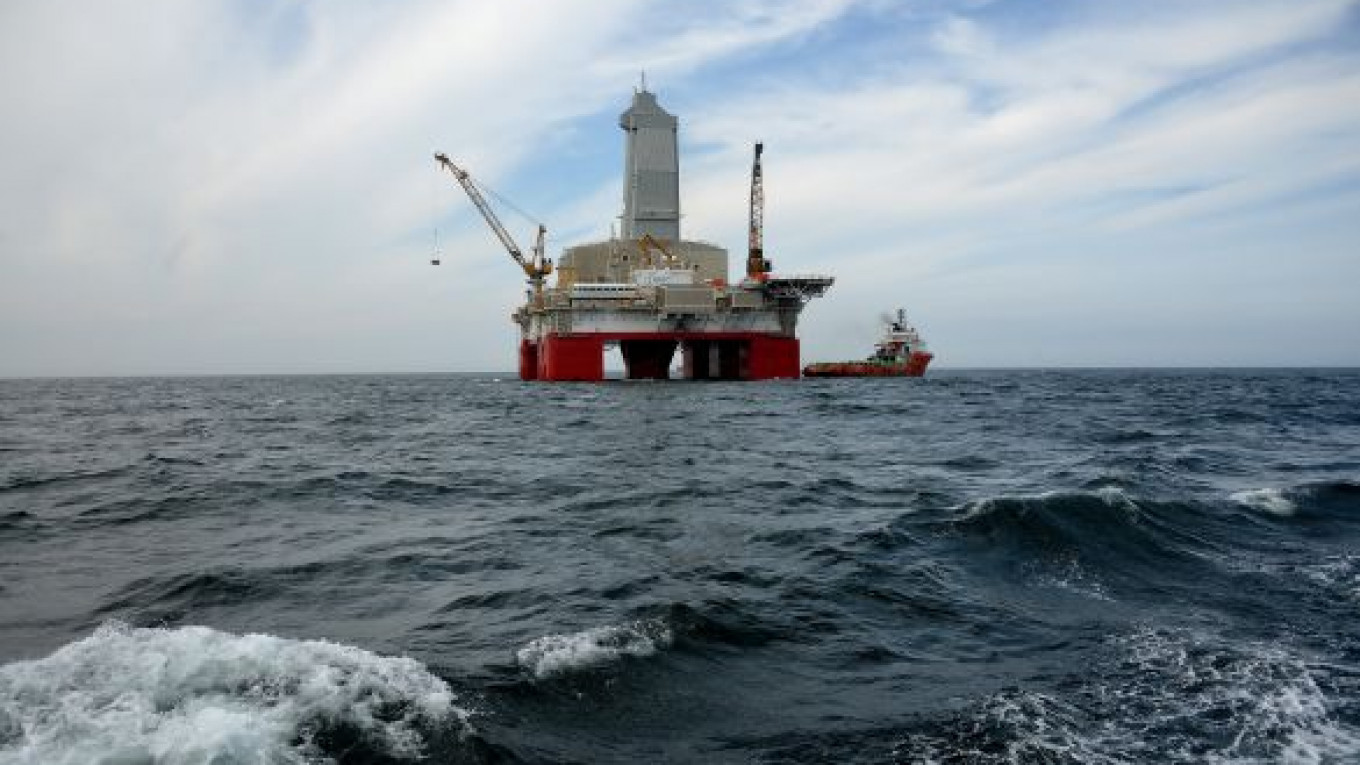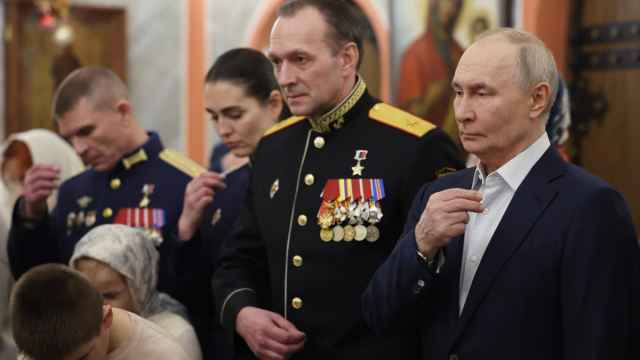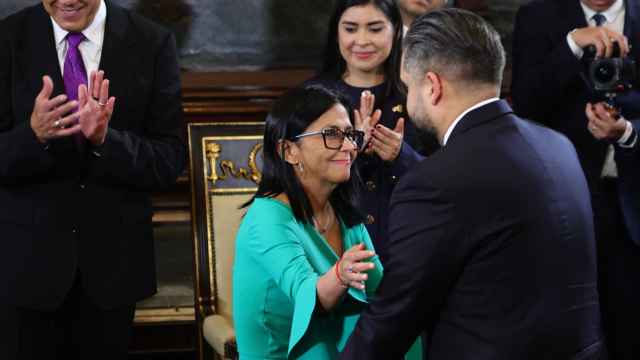Gazprom and Rosneft may be obliged to purchase Russian-made equipment to develop offshore oil and gas fields, under legislative amendments being drawn up by the State Duma Committee on Energy and the Union of Oil and Gas Equipment Producers.
The initiative would force the two state companies, which dominate the country's massive resource extraction industry, to locally source either a fixed percentage of equipment — from 30 to 80 percent — or a quantity determined on an individual project-by-project basis.
The amendments will be presented to the government by the end of the year, Izvestia reported.
Currently, the law has no such requirements, and Russian oil and gas firms tend to buy from overseas providers, which often offer a better quality-price package and speedier delivery, said Alexander Romanikhin, president of the Union of Oil and Gas Equipment Producers.
This, he said, leads to dependence on foreign manufacturers in a sector of strategic importance.
"It's like buying tanks from America. We sponsor their economy while the Russian oil and gas industry dies out."
Any local purchase requirements should be introduced gradually, said Radif Tuktarov, who manages purchases for extraction services at Gazprom Neft. To avoid damaging offshore development, the quota could rise from 5 percent in 2015 to 90 percent by 2030, he said, adding that foreign producers would likely respond to the rules by localizing production facilities.
Not everyone thinks such legislation can reanimate Russian capacity in the sector. Major infrastructure changes would be required to make it possible, said Marat Mansurov, director of Gazprom's research arm, Gazprom VNIIGAZ, and the right way to source equipment is on the basis of market competition.
Rosneft has declared its readiness to buy locally — Igor Sechin, the company's CEO, has said that of planned investment of $500 billion in offshore equipment, $400 billion will go to Russian suppliers. However, this may in practice be difficult to achieve — the law obliges companies to offer tenders on purchases, and directs that the winner should be chosen first and foremost on the basis of price.
A Message from The Moscow Times:
Dear readers,
We are facing unprecedented challenges. Russia's Prosecutor General's Office has designated The Moscow Times as an "undesirable" organization, criminalizing our work and putting our staff at risk of prosecution. This follows our earlier unjust labeling as a "foreign agent."
These actions are direct attempts to silence independent journalism in Russia. The authorities claim our work "discredits the decisions of the Russian leadership." We see things differently: we strive to provide accurate, unbiased reporting on Russia.
We, the journalists of The Moscow Times, refuse to be silenced. But to continue our work, we need your help.
Your support, no matter how small, makes a world of difference. If you can, please support us monthly starting from just $2. It's quick to set up, and every contribution makes a significant impact.
By supporting The Moscow Times, you're defending open, independent journalism in the face of repression. Thank you for standing with us.
Remind me later.






